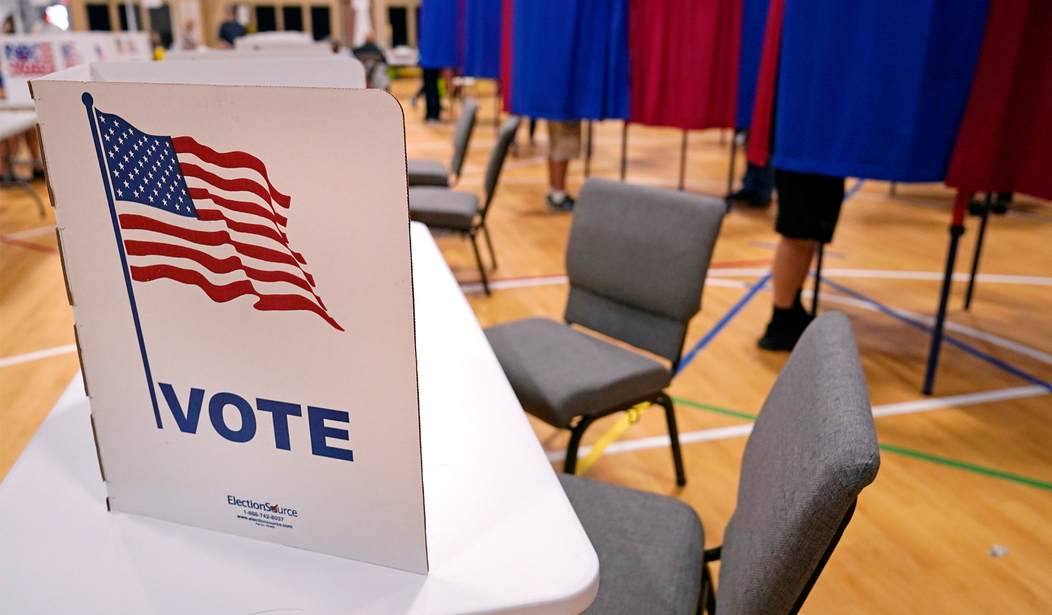In the two weeks since Alaska’s special election for their only seat in the House of Representatives, many commentators have quite simply gotten the story wrong.
Many articles have praised the Democratic candidate, Mary Peltola, for miraculously flipping the seat that was held for 49 years by Republican Don Young. Others predict that the Alaskan race spells good fortune for Democrats across the country in the midterm elections. Even conservative voices who anticipate a massive red wave in November contend that the results are merely a repudiation of Alaska’s former governor, Sarah Palin (R).
Most of these perspectives, however, have either misunderstood or simply ignored the real culprit of the upset in Alaska: ranked-choice voting (RCV).
After narrowly passing by only 50.55 percent of the vote on a ballot initiative in 2020, Alaskans adopted RCV for their state-wide general elections. While traditional elections in America are organized by a one-man, one vote plurality system, voters in RCV elections rank their preferences from a multitude of candidates. If no candidate wins a clear 50-percent-plus-one majority after the first round of counting, the lowest-scoring candidate will be eliminated. Of those who voted for the eliminated candidate, their second choices will be counted in the second round of tabulations, and this cycle will continue until one of the candidates arrives at a majority.
Recommended
Although there are numerous problems with RCV, perhaps its greatest flaw is that it disenfranchises voters by disregarding valid ballots over successive rounds of counting.
RCV advocates claim that this system protects majority rule better than traditional plurality elections. In reality, RCV only creates an artificial majority by eliminating so-called “exhausted ballots.” As in all elections, some RCV ballots are thrown out due to not following instructions, but even ballots that follow instructions can be eliminated if the voter only ranks candidates that are no longer in contention.
In other words, for a voter’s voice to matter in every round of an RCV election, he must vote for all candidates on the ballot, even those he may not support.
Just look at the statistics from Alaska’s election. In the final tally, Palin and Peltola were separated by only 5,219 votes, or just under three percent of the total votes cast. More than 11,000 ballots were exhausted by round two, meaning that these individuals voted only for the other Republican candidate, Nick Begich, rather than ranking multiple choices. On top of this, nearly 3,000 write-in votes were eliminated before the second round of counting began.
Including exhausted ballots, overvotes, and write-ins, nearly 15,000 ballots were thrown out, effectively disenfranchising a sizeable portion of the electorate.
But this problem is not unique to Alaska. A study of recent elections in Maine—the only other jurisdiction that uses RCV statewide—found that, of 98 percent of RCV elections, 60 percent of RCV victors did not win majorities of the total votes cast. In the Democratic primary for Maine’s Second Congressional district in 2018, nearly 9,000 voters had their voices silenced by ballot exhaustion.
In Alaska’s case, the situation is even more problematic because votes were thrown out along partisan lines. Although 29 percent of those who voted for Begich opted for Peltola as their second choice, the other 71 percent of voters (38,311) did not want Peltola as even their second choice for representative. In the first round, nearly 60 percent of Alaskan voters cast their ballots for a Republican.
Unfortunately, Alaskans have learned their lesson about RCV the hard way, but the consequences of the RCV election this November will be even more serious. Unless Begich voluntarily steps away from the race, Alaskans will have the exact same ballot for the general election in November. Further still, the RCV structure will have significant consequences for both the senatorial and gubernatorial races.
Do not be naïve, though. The mechanics of Alaska’s experiment have implications for American election integrity on the whole. What truly matters is the extent to which RCV waters down and suppresses the voice of the electorate.
As of July 2022, 11 million Americans already live in jurisdictions that use RCV in some capacity, and progressive organizations are fueling the push to make RCV the future of American elections across the board.
With already dangerously low levels of voter confidence, now is not the time to engage in experiments destined for failure.
When it comes to RCV in the lower 48, hopefully all Americans can learn from Alaska’s example rather than firsthand experience.
Gabrielle M. Etzel is a Senior Research Fellow for the Foundation for Government Accountability.

























Join the conversation as a VIP Member